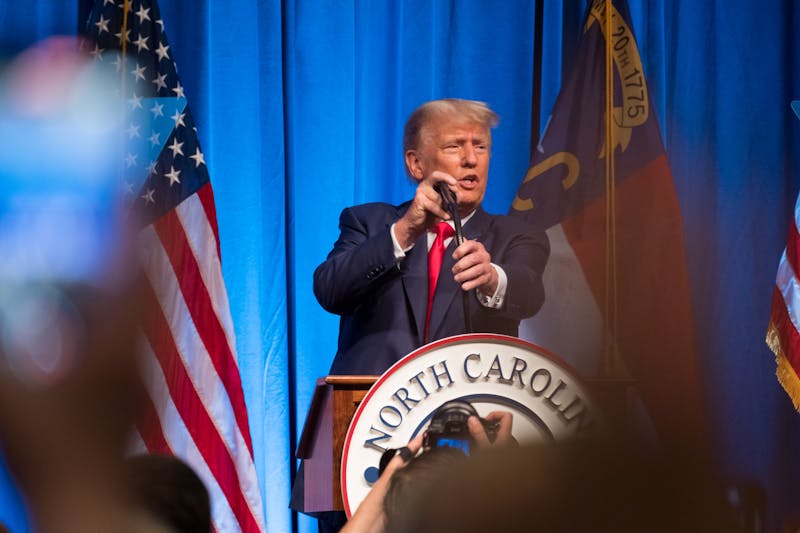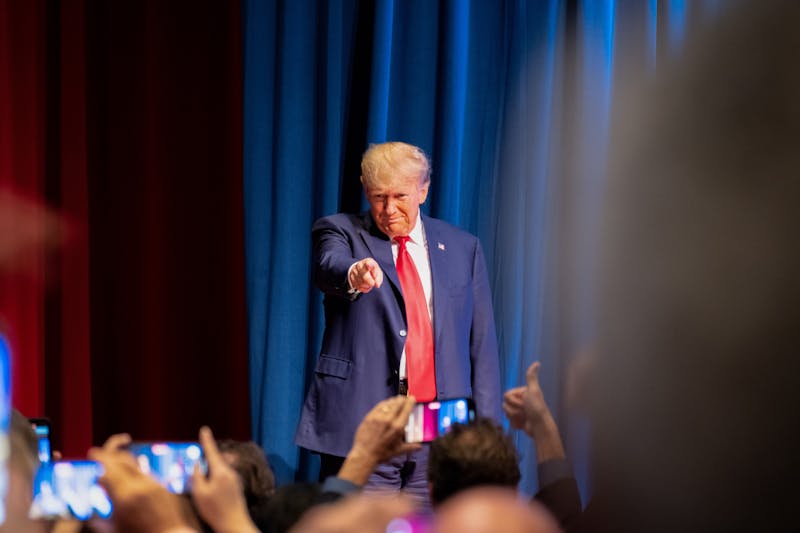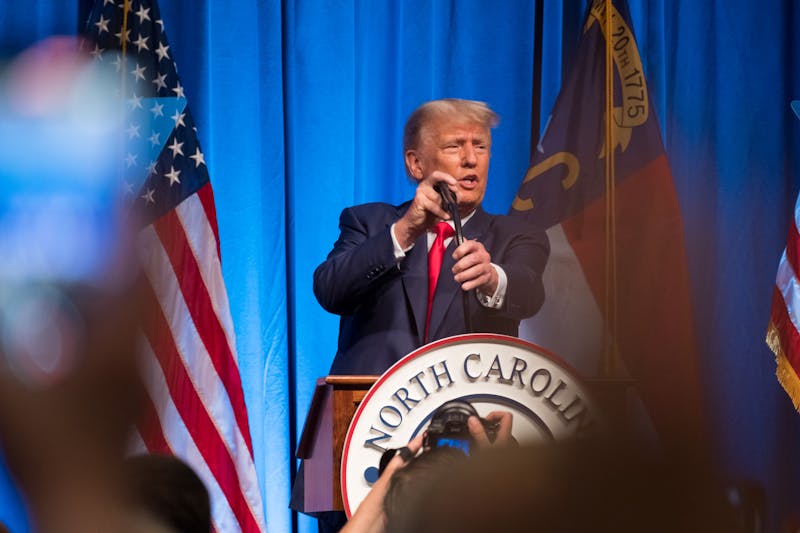
Columnist Olivia Nicastro comments on the recent conviction of former President and Wharton graduate Donald Trump.
Credit: Chase SuttonOn May 30, 2024, former President Donald Trump was found guilty on 34 felony counts related to a hush money payment made to adult film star Stormy Daniels during his 2016 presidential campaign. The decision sparked mixed emotions among Americans and has the potential to deepen the nation’s political divide, with his supporters viewing it as a politically motivated attack and his opponents seeing it as overdue justice.
Since President Joe Biden’s victory in the 2020 election, Trump supporters have fostered a deep-seated distrust of the American government and its legal system, believing that the election was rigged by the Democratic Party. Given that Justice Juan Merchan, who oversaw Trump’s conviction, made donations to Biden’s campaign and groups like the “Progressive Turnout Project” and “Stop Republicans” during the 2020 election, Trump supporters will likely perceive this as another partisan maneuver by Democrats.
The aftermath of the 2020 election culminated in the Jan. 6, 2021 attack on the United States Capitol, which was driven by anger among Trump supporters who aimed to keep him in power by forcefully occupying the Capitol. Given the history of Trump supporters expressing their anger through actions like the events of Jan. 6, it wouldn’t be unexpected for a similar situation to arise following the conviction, especially if it ultimately leads to Trump's defeat in the 2024 election.
If Trump were to lose in the 2024 election, it would suggest a shift in allegiance among former Trump supporters. However, based on Trump’s own words during a 2016 campaign rally, where he famously boasted that he could “shoot somebody” and not lose any voters, such a shift appears unlikely. It seems that the supposed unwavering loyalty of his supporters is finally being put to the test.
Trump’s opponents view his conviction as a long-awaited moment of accountability for his actions. Since 2016, they have pointed to his involvement in Russian meddling and his role in orchestrating the Jan. 6 Capitol attack as sources of legal misconduct. In light of the numerous controversies and scandals that tainted his administration, the conviction seems to his opponents to be a significant step toward justice and a reaffirmation of the rule of law.
Some of Trump’s previously undecided opponents, who were uncertain about whom to support in the November election due to ongoing criticism of Biden's foreign policy and economic indifference, may now feel strongly enough to back Biden in order to prevent Trump from securing a second term.
Trump’s conviction also prompts a deeper examination of ethical considerations by his opponents. While his opponents have long been puzzled by the unwavering loyalty of his supporters, the idea of continued support despite his felony conviction may deepen the divide between Trump’s supporters and opponents, both morally and politically. This includes Republican Trump opponents losing trust in and support for the Republican Party as it continues to back his candidacy.
While some Republicans have distanced themselves from Trump following the conviction, others have doubled down on their support, viewing the legal proceedings as an unjust attack on their party’s leader. This internal rift has exposed underlying tensions and differing visions for the future of the party. As the party struggles with these divisions, it faces challenges in presenting a united front leading up to the 2024 election, which could impact its ability to attract voters.
The widening gaps in perspectives between Trump’s supporters and opponents have repercussions beyond political discourse, extending into societal norms and values. As Trump vows to appeal his conviction, the path forward remains uncertain. Approaching the 2024 election, America faces the challenge of defining acceptable conduct and ethical standards for our political leaders, with ongoing support for Trump testing these boundaries.
OLIVIA NICASTRO is a rising College senior studying psychology from Lancaster, Pa. Her email is nolivia@sas.upenn.edu.
The Daily Pennsylvanian is an independent, student-run newspaper. Please consider making a donation to support the coverage that shapes the University. Your generosity ensures a future of strong journalism at Penn.
Donate











